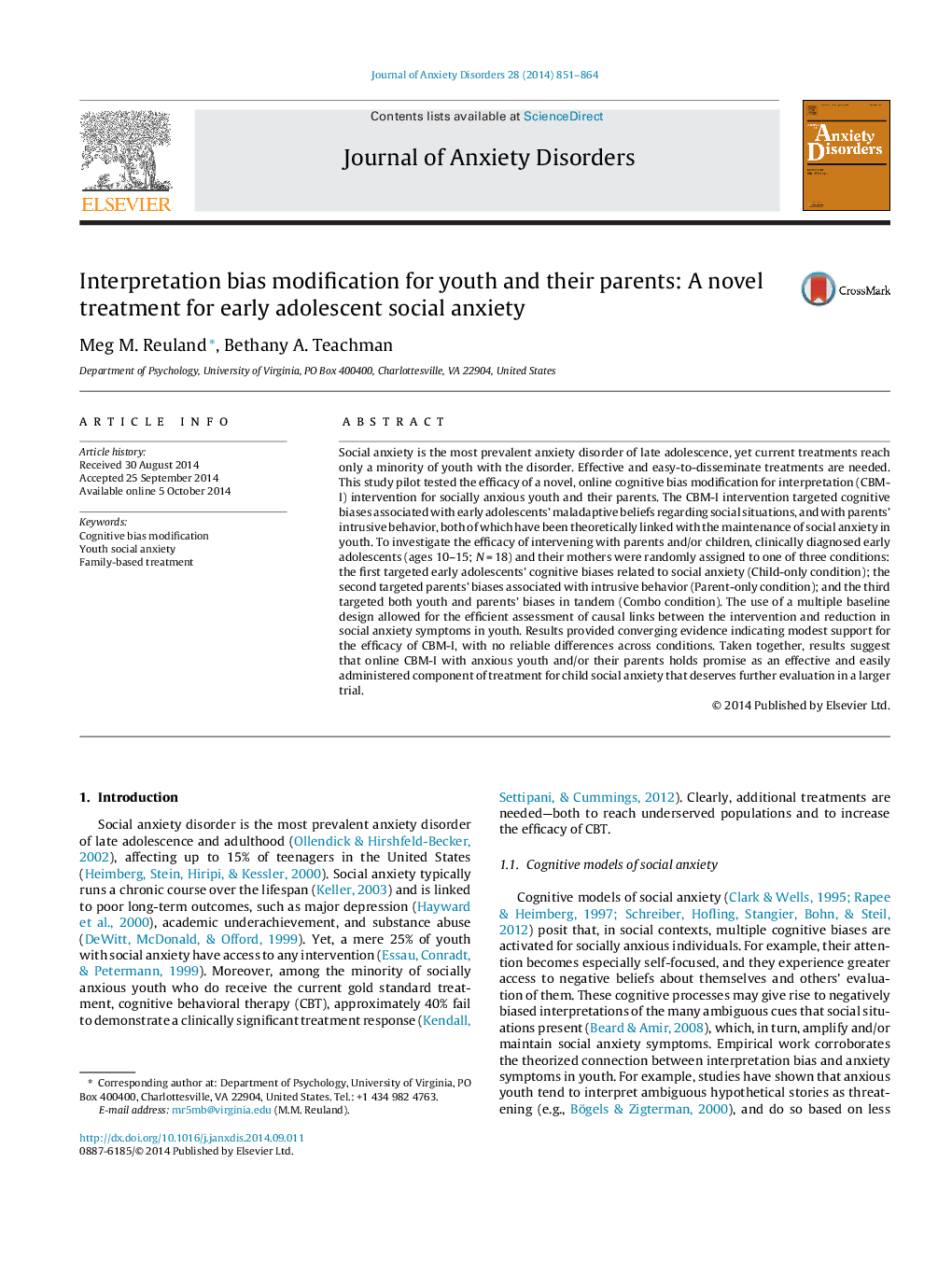| Article ID | Journal | Published Year | Pages | File Type |
|---|---|---|---|---|
| 10447589 | Journal of Anxiety Disorders | 2014 | 14 Pages |
Abstract
Social anxiety is the most prevalent anxiety disorder of late adolescence, yet current treatments reach only a minority of youth with the disorder. Effective and easy-to-disseminate treatments are needed. This study pilot tested the efficacy of a novel, online cognitive bias modification for interpretation (CBM-I) intervention for socially anxious youth and their parents. The CBM-I intervention targeted cognitive biases associated with early adolescents' maladaptive beliefs regarding social situations, and with parents' intrusive behavior, both of which have been theoretically linked with the maintenance of social anxiety in youth. To investigate the efficacy of intervening with parents and/or children, clinically diagnosed early adolescents (ages 10-15; NÂ =Â 18) and their mothers were randomly assigned to one of three conditions: the first targeted early adolescents' cognitive biases related to social anxiety (Child-only condition); the second targeted parents' biases associated with intrusive behavior (Parent-only condition); and the third targeted both youth and parents' biases in tandem (Combo condition). The use of a multiple baseline design allowed for the efficient assessment of causal links between the intervention and reduction in social anxiety symptoms in youth. Results provided converging evidence indicating modest support for the efficacy of CBM-I, with no reliable differences across conditions. Taken together, results suggest that online CBM-I with anxious youth and/or their parents holds promise as an effective and easily administered component of treatment for child social anxiety that deserves further evaluation in a larger trial.
Related Topics
Health Sciences
Medicine and Dentistry
Psychiatry and Mental Health
Authors
Meg M. Reuland, Bethany A. Teachman,
